#BLM protests
Explore tagged Tumblr posts
Text
The Quiet Unraveling: Navigating Complacency, Consumerism, and the Search for Meaning in a Fractured World
Let’s begin with a confession: None of us are innocent here. We’re all tangled in the same messy web of contradictions—yearning for purpose while numbing ourselves with distractions, craving justice while clinging to comfort. This isn’t a condemnation; it’s an invitation to untangle the knots together. Because the truth is, the systems that suffocate us didn’t emerge in a vacuum. They grew from our collective fears, our exhaustion, and the very human desire to just make it through the day.
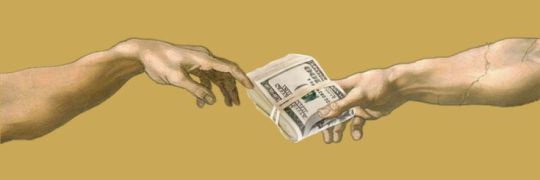
1. Complacency and Conformity: The Seduction of Safety
To understand complacency, we must first confront its seductive logic: Safety is not the absence of danger, but the illusion of control. We cling to routines, traditions, and systems not because we’re naive, but because the alternative—confronting the fragility of it all—feels paralyzing. Consider the factory worker clocking in for decades at a job that erodes their body, the student drowning in debt while chasing a degree they’re told will “guarantee stability,” or the parent who swallows their political disillusionment to avoid rocking the boat for their children. These aren’t failures of character; they’re rational responses to a world that punishes deviation.
Conformity is rarely about laziness—it’s about risk assessment. When the 2008 financial crisis wiped out pensions and homes, people didn’t suddenly rise up; they doubled down on “safe” choices. Why? Because rebellion is a luxury when you’re one missed paycheck from ruin. The gig economy epitomizes this: Workers accept exploitative conditions not because they lack ambition, but because algorithms dangle the carrot of “flexibility” while eroding labor rights. The message is clear: Play by the rules, or lose everything.
Even our language betrays this conditioning. We call nonconformists “idealists” or “radicals,” terms dripping with paternalism. Meanwhile, those who uphold the status quo are “practical” or “responsible.” This framing isn’t accidental—it’s cultural gaslighting. By equating compliance with maturity, systems ensure we police ourselves.
But safety is a mirage. For every person who “succeeds” by societal metrics, there are countless others crushed by the weight of unspoken compromises. Take the corporate ladder: Climbing it often demands silencing ethics (“Don’t ask about the offshore labor”), sacrificing health (“Sleep is for the weak”), and numbing creativity (“Follow the template”). We call this “success,” but it’s a pyrrhic victory—a life half-lived in exchange for a gold watch and a retirement plaque.
The toll isn’t just personal; it’s collective. Conformity sustains systems that harm us all. For example:
Environmental Collapse: We recycle dutifully while corporations lobby against climate policies, knowing our individual efforts are drops in an ocean of industrial waste.
Healthcare Inequity: Millions accept inadequate insurance plans because “that’s just how it is,” while pharmaceutical giants price-gouge life-saving medications.
Political Apathy: Voters settle for the “lesser evil” cycle after cycle, not because they’re apathetic, but because they’ve been conditioned to believe real change is impossible.
These aren’t signs of moral failure—they’re evidence of a rigged game. Systems thrive when we internalize their limitations as inevitabilities.
Breaking free doesn’t require grand gestures. It starts with questioning the stories we’ve been sold:
The Myth of Meritocracy: We’re told talent and grit guarantee success, yet study after study reveals wealth and connections matter most. Acknowledge this, and suddenly “laziness” looks more like exhaustion from running a race with no finish line.
The Cult of Busyness: Productivity culture equates self-worth with output. But what if we measured value in rest, creativity, or community care instead?
The Fear of “Otherness”: Conformity often masks a deeper fear—of being ostracized, of losing belonging. Yet some of history’s greatest shifts began with people who dared to be “weird”: LGBTQ+ activists, disability advocates, indigenous land defenders.
Resistance can be subtle:
A teacher who skirts standardized curricula to nurture critical thinking.
A nurse unionizing despite threats of retaliation.
A teenager rejecting hustle culture to prioritize mental health.
These acts aren’t glamorous, but they’re revolutionary because they reject the premise that this is all there is.
Complacency isn’t natural—it’s engineered. Consider:
Education Systems: Schools often prioritize obedience over curiosity, training students to memorize answers rather than ask questions.
Media Narratives: News cycles reduce complex issues to binaries (left vs. right, “woke” vs. “anti-woke”), discouraging nuance.
Corporate “Wellness”: Companies offer yoga classes and mindfulness apps to placate burnout—a Band-Aid on a bullet wound—while ignoring demands for living wages or humane hours.
To dismantle this, we must name the forces at play. For instance, the bystander effect—a psychological phenomenon where individuals are less likely to act in a crisis when others are present—explains why we tolerate societal rot. If everyone’s silent, we assume someone else will speak. But when one person steps forward, it cracks the illusion of consensus.
What if safety wasn’t about clinging to the familiar, but about building systems that actually protect us? Imagine:
Economic Safety: Universal healthcare, living wages, and affordable housing so survival isn’t a daily gamble.
Emotional Safety: Cultures that prioritize mental health over performative hustle.
Intellectual Safety: Spaces where questioning norms is encouraged, not punished.
This isn’t utopian—it’s pragmatic. Complacency persists because we’ve been convinced alternatives are unrealistic. But every workers’ rights law, environmental regulation, and social safety net began as a “radical” idea.
2. Consumerism and Distraction: The Double-Edged Comfort
Let’s be honest: We’ve all soothed ourselves with the dopamine hit of an online purchase or lost hours to the algorithmic abyss of TikTok. Consumerism isn’t some moral failing; it’s a rational response to alienation. Under late-stage capitalism, where work is precarious, communities are fractured, and futures feel foreclosed, consumption becomes a perverse form of therapy. That new pair of shoes isn’t just a product—it’s a fleeting antidote to existential dread. The problem isn’t that we crave comfort; it’s that the system offers no other language for healing.
Capitalism manufactures scarcity—not just of resources, but of meaning. It tells us we’re incomplete without the latest gadget, that self-worth is tied to productivity, and that connection can be bottled and sold as a “wellness retreat.” Consider:
Fast Fashion: We buy cheap clothes to fill voids, knowing they’re stitched by underpaid workers in sweatshops. The cycle isn’t ignorance; it’s despair dressed as distraction.
Planned Obsolescence: Phones die after two years, appliances break just past warranty—a deliberate design to keep us chasing replacements. We’re not consumers; we’re hostages.
Digital Escapism: Social media algorithms feed us rage and envy because conflict drives clicks. We doomscroll not because we’re addicted, but because the “real world” offers little refuge.
This isn’t a coincidence—it’s by design. Late-stage capitalism thrives on perpetual dissatisfaction. It can’t survive if we’re content, connected, or politically engaged. So it commodifies our loneliness, monetizes our anger, and sells us bandaids for bullet wounds.
Blaming individuals for overconsumption is like blaming a fish for drowning. The real issue isn’t personal excess; it’s a system that requires excess to function. Capitalism’s growth imperative demands we extract, produce, and discard at accelerating rates—even if it means burning the planet. Consider:
Advertising’s Psychological Warfare: Corporations spend billions to manipulate our insecurities, convincing us happiness is a product. Socialism asks: What if we redirected those resources to universal mental healthcare instead?
The Time Poverty Trap: Overworked, underpaid people have little energy to cook, create, or connect. No wonder we UberEats dinner and binge Netflix—we’re exhausted. Socialism argues for shorter workweeks and living wages so we can reclaim time for what matters.
The Myth of “Ethical Consumption”: Boycotts and reusable straws are Band-Aids on a hemorrhage. You can’t “vote with your dollar” when billionaires own the ballot box. Socialism rejects market-based solutions and demands systemic change: Why not dismantle the structures forcing us to choose between survival and ethics?
Consumerism isn’t just about stuff—it’s about stifling dissent. The more time we spend curating online personas or hunting discounts, the less we have to organize, dream, or demand better. Late capitalism turns us into micro-managers of our own oppression, too busy comparing Spotify Wrapped stats to notice our pensions evaporating.
But distraction also serves a darker purpose: It atomizes us. Social media replaces solidarity with individualism (“Here’s 10 self-care tips for surviving burnout!”), while gig apps pit workers against each other for scraps. The result? A fractured populace, too isolated to challenge the oligarchs hoarding wealth.
Socialism, in contrast, centers collective power. It asks: What if we redirected the energy spent on Black Friday stampedes toward housing cooperatives? What if viral trends promoted mutual aid instead of hyper-consumption? Movements like tenant unions, community land trusts, and worker-owned businesses offer blueprints—not just for surviving capitalism, but dismantling it.
Dismantling consumerism isn’t about austerity; it’s about abundance. Imagine:
Universal Basic Services: Free healthcare, education, transit, and housing. When survival isn’t tied to wages, consumption loses its coercive power.
Democratic Workplaces: Worker cooperatives where employees own profits and set hours. Imagine producing goods for utility, not shareholder profit—no planned obsolescence, no exploitative ads.
Cultural Shift: Public spaces that prioritize community over commerce—libraries, parks, free theaters. Art funded for expression, not clicks.
This isn’t a utopia. Spain’s Mondragon Corporation, a federation of worker co-ops, employs 80,000 people with equitable wages. Finland’s housing-first policy slashed homelessness by treating shelter as a right, not a commodity. These models prove that when people control resources, they prioritize sustainability over growth for growth’s sake.
The socialist project isn’t about depriving joy—it’s about redefining it. Late capitalism reduces human complexity to “consumer” or “laborer.” Socialism asks: What if we valued people as creators, caregivers, and collaborators?
This means:
Dismantling the Attention Economy: Tax predatory algorithms. Fund public media free from ads. Let creativity flourish without surveillance.
Embracing Degrowth: Prioritizing well-being over GDP. A four-day workweek isn’t radical—it’s a return to pre-industrial rhythms where life wasn’t monetized.
Cultivating Collective Joy: Block parties over shopping sprees. Skill-sharing networks over Amazon. Grief circles over retail therapy.
Consumerism is a symptom of a deeper sickness: a world that treats humans as inputs and outputs. Socialism, at its core, is about healing that rupture—not through moralizing, but through solidarity.
Yes, we’ll still crave comfort. But what if comfort looked like a community garden instead of a McMansion? Like guaranteed healthcare instead of a “retail therapy” splurge? Like knowing your labor benefits neighbors, not CEOs?
The path forward isn’t shame. It’s building systems where our needs are met, our time is our own, and our worth is untethered from what we buy. Dismantling capitalism isn’t about losing luxuries—it’s about gaining freedom.
After all, the most radical act of defiance isn’t burning a mall. It’s imagining a world where we no longer need one.

3. Social and Political Awareness: The Weight of Witnessing
To bear witness to history is to carry its ghosts. It demands we confront not only the brutality of oppression but also the fragility of progress. From the civil rights movement to LGBTQ+ liberation, every stride toward justice has been met with backlash, erasure, and revisionism. Yet within this tension lies a truth: Awareness is not passive—it is a battleground
Programs designed to teach racial history—like Holocaust education, slavery museums, or Indigenous truth commissions—are often hailed as societal reckonings. But too often, they sanitize the past to soothe the present. For example:
The U.S. Civil Rights Movement: School curricula reduce Dr. King to a pacifist caricature, scrubbing his critiques of capitalism and militarism. Meanwhile, figures like Malcolm X or the Black Panthers are framed as “radicals,” their demands for systemic change diluted into soundbites.
South Africa’s Truth and Reconciliation Commission: While it exposed apartheid’s horrors, it prioritized forgiveness over reparations, leaving economic apartheid intact.
These programs risk becoming performative pedagogy, offering catharsis without accountability. True historical awareness isn’t about guilt—it’s about tracing the fingerprints of oppression to their source: Who still holds power? Who profits from forgetting?
The LGBTQ+ rights movement has always been rooted in trans and queer resistance—but you wouldn’t know it from mainstream narratives. Consider:
Stonewall (1969): Marsha P. Johnson, a Black trans woman, and Sylvia Rivera, a Latina trans activist, were instrumental in the riots. Yet for decades, cisgender gay white men were centered in commemorations. Even today, states like Florida ban discussions of gender identity in schools, erasing trans contributions to history.
The AIDS Crisis: Trans activists like Miss Major Griffin-Gracy and organizations like ACT UP fought for healthcare and dignity while governments ignored the deaths of thousands. Their legacy is often reduced to a red ribbon, stripped of its radical fury.
Modern Backlash: Anti-trans laws weaponize historical amnesia, framing trans existence as a “new trend.” But trans people have always existed—from Indigenous Two-Spirit communities to 19th-century queer liberationists like Karl Heinrich Ulrichs.
There is no LGBTQ+ without the T and Q. To exclude trans and queer stories is to amputate the movement’s heart
History’s greatest leaps forward were born not from polite debate but from collective rage. Examples abound:
Stonewall Riots (1969): Sparked modern LGBTQ+ activism. The first Pride was a riot, not a parade.
Compton’s Cafeteria Riot (1966): Led by trans women and drag queens in San Francisco, predating Stonewall.
Black Lives Matter (2013–present): Global protests after George Floyd’s murder forced reckonings on policing, with Minneapolis pledging to dismantle its police department (though progress remains contested).
The Arab Spring (2010–2012): Toppled dictators but also revealed the cost of revolution—hope tempered by backlash.
Farmers’ Protests in India (2020–2021): Millions forced the repeal of corporate farming laws, proving people power can outmuscle neoliberalism.
ACT UP’s “Die-Ins” (1980s–90s): AIDS activists stormed the NIH and St. Patrick’s Cathedral, shaming institutions into action.
These movements weren’t “peaceful”—nor should they have been. Justice is rarely granted; it’s seized.
South Africa’s Anti-Apartheid Movement: International boycotts and domestic uprisings dismantled legal segregation—but economic apartheid persists.
Ireland’s Marriage Equality Referendum (2015): Grassroots campaigns, led by groups like Yes Equality, made Ireland the first country to legalize same-sex marriage by popular vote.
Argentina’s Gender Identity Law (2012): Trans activists won the world’s most progressive gender self-determination policy, including free healthcare.
Sudan’s 2019 Revolution: Women and queer youth frontlined protests that ousted dictator Omar al-Bashir, despite ongoing violence.
These movements share a thread: Those most marginalized—trans people, Black women, poor farmers—often lead the charge, only to be sidelined when victories are claimed.
The Fight Against Erasure: How to Honor (and Continue) the Work
Teach Intersectional History: Highlight figures like Bayard Rustin (a gay civil rights organizer) or Stormé DeLarverie (a Black lesbian who sparked Stonewall).
Fund Grassroots Archives: Support projects like the Transgender Archives at the University of Victoria or the African American History Museum.
Amplify Living Histories: Listen to movements like Stop Cop City (Atlanta) or Youth v. Apocalypse (climate justice).
Reject Respectability Politics: Celebrate the “unruly” — the rioters, the occupiers, the ones who refuse to be palatable.
Awareness is not a museum exhibit—it’s a call to action. Every right we have—from marriage equality to voting access—was wrested from the jaws of power by those deemed “too loud,” “too angry,” or “too radical.” The backlash we see today—anti-trans laws, voter suppression, historical bans—is not a sign of defeat. It’s proof the powerful fear our memory.
So remember: When they erase trans pioneers from textbooks, teach them. When they whitewash slavery, revolt. When they criminalize protest, organize. The weight of witnessing is heavy, but it is also a weapon. Wield it.
4. Breaking Free: The Messy Work of Awakening
Awakening is not a sudden epiphany but a slow, grinding unfurling—a reckoning with the layers of denial, distraction, and dissonance that shroud our lives. It begins in the quiet moments when the scripts we’ve been handed—work, consume, repeat—start to fray at the edges, revealing the hollow core beneath. The weight of complacency, once a familiar burden, becomes intolerable. The distractions that once numbed us—the endless scroll, the curated personas, the ritualized consumption—now feel like ill-fitting costumes. This is the ache of awakening: the visceral understanding that the safety we’ve clung to is a mirage, and the world we’ve accepted is a gilded cage.
The journey is fraught with psychological landmines. Cognitive dissonance erupts as we confront the chasm between our values and our actions. We’ve been conditioned to equate conformity with survival, to mistake busyness for purpose, and to rationalize injustice as inevitability. To question these narratives is to invite a storm of existential anxiety—What if I’m wrong? What if I lose everything? The fear is primal. Our brains, wired for pattern recognition and predictability, revolt against the uncertainty of change. We cling to the devil we know, even when it devours us. This is the paradox of awakening: To break free, we must first sit in the discomfort of knowing we’ve been complicit, that our silence funded systems we despise, that our distractions were collaborators in our own erasure.
Yet this pain is not punishment—it’s alchemy. It’s the friction required to transmute guilt into accountability, passivity into action. Consider the suffocating grip of consumerism, where every purchase is a tiny rebellion against emptiness. We’ve been taught to medicate loneliness with products, to substitute material accumulation for meaning. But awakening demands we ask: What am I truly hungry for? The answer is rarely a thing. It’s connection—to ourselves, to others, to a world beyond the transactional. It’s the longing to create rather than consume, to belong rather than perform. This shift is seismic. It requires rewiring neural pathways forged by decades of capitalist conditioning, where self-worth is tied to productivity and joy is commodified.
The process mirrors the collective struggles etched into history. The civil rights activists who faced fire hoses and jail cells, the LGBTQ+ pioneers who rioted at Stonewall, the Black Lives Matter protestors who turned grief into global mobilization—they too grappled with the terror of rupture. Their awakenings were not pristine moments of clarity but messy, iterative acts of courage. They carried the weight of knowing their fight might outlive them, that progress could be reversed, that erasure was a constant threat. Yet they chose to disrupt the trance, to risk their safety for a future they might never see. Their legacy is a testament to the unbearable cost of staying asleep—and the transformative power of refusing to look away.
Awakening, then, is both personal and collective. It’s the recognition that our individual liberation is bound to the liberation of others. The systems that profit from our complacency—the same ones that erase trans voices, exploit workers, and plunder the planet—rely on our isolation. They thrive when we internalize shame, when we believe our smallness is inevitable. But solidarity cracks this illusion. When we join movements like the Fight for $15 or the resistance against anti-trans legislation, we tap into a lineage of defiance that stretches from the suffragettes to Standing Rock. We realize our power is not in perfection but in persistence—in showing up, flawed and furious, to chip away at the edifice of oppression.
The path is neither linear nor guaranteed. There will be days when the pull of the old life is seductive, when the news cycle’s horrors tempt us to retreat into numbness. Awakening is not purity; it’s resilience. It’s the queer teen who survives conversion therapy and becomes an advocate, the burned-out worker who organizes a union despite retaliation, the privileged ally who confronts their own complicity and redistributes resources. It’s the understanding that every small act of resistance—a difficult conversation, a boycott, a vote—is a thread in the tapestry of change.
And here, in the marrow of the struggle, lies the redemption: Awakening gifts us our humanity. The numbness that once shielded us from pain also barred us from joy. The distractions that anesthetized us stifled our creativity. The conformity that promised safety suffocated our authenticity. To break free is to reclaim the full spectrum of being—to feel rage and hope, grief and solidarity, not as weaknesses, but as proof of aliveness. It’s to trade the shallow comfort of the status quo for the messy, magnificent work of building something new.
The road is long, and the dawn may seem distant. But history whispers to us: Every riot, every strike, every act of defiance mattered. They shifted the axis of the possible. Your awakening, however stumbling, is part of that lineage. It’s worth the fight—not because victory is guaranteed, but because the alternative is a life half-lived. The cage door was never locked. It only felt that way. Step out. Breathe. Join the chorus of those who refuse to let the world sleepwalk into ruin. The cost is everything. The reward is a world remade.
5. A Path Forward: Gentleness as Rebellion — And the Question That Haunts Us All
In a world that equates strength with domination and progress with relentless grind, gentleness is an act of defiance. It’s a refusal to replicate the cruelty of systems that demand we harden ourselves to survive. Gentleness is not passivity; it’s the quiet, radical work of tending to the fractures—in ourselves, in each other, in the brittle scaffolding of a society teetering on collapse. It’s the factory worker who carves out time to mentor a younger colleague despite the assembly line’s unrelenting pace. It’s the student drowning in debt who still shows up to a climate strike. It’s the exhausted parent who, instead of scrolling, asks their child, “What hurts?” and truly listens. These acts seem small against the roar of injustice, but they are the antidote to the poison of isolation that late-stage capitalism brews.
Gentleness threads through every struggle we’ve named: It’s the complacent worker who risks vulnerability to unionize, knowing retaliation looms. It’s the consumer who opts out of Black Friday to repair a frayed friendship. It’s the activist who trades performative outrage for patient community-building. It’s the awakened soul who forgives their own complicity long enough to keep fighting. This is how we dismantle the myth that change requires heroes. It doesn’t. It requires humans—messy, tender, persistent—who refuse to let the world’s callousness become their own.
History’s loudest revolutions were born from gentleness disguised as ferocity. The Black Lives Matter marchers who handed out water and masks amid tear gas. The AIDS caregivers who held the dying when governments looked away. The LGBTQ+ elders who offered spare couches to queer kids cast out by families. These were not just acts of resistance; they were acts of love, a word too often sanitized into meaninglessness. Real love is inconvenient. It demands we redistribute resources, dismantle hierarchies, and prioritize care over growth. It means seeing the migrant detained at the border, the trans teen disowned by relatives, the overworked single parent, and whispering: “Your struggle is mine.”
But love alone is not enough. Gentleness must be coupled with the unflinching question that Martin Niemöller etched into history’s conscience:
First they came for the Communists, and I did not speak out—because I was not a Communist... Then they came for me—and there was no one left to speak out.
Today, the “they” is not a faceless regime but the logic of disposability that lurks in all of us. It’s the algorithms that dehumanize Palestinians as collateral, the lawmakers who erase trans lives from textbooks, the corporations that sacrifice Indigenous land for lithium mines. Every time we look away—because the news is too heavy, the guilt too sharp, the risk too great—we rehearse Niemöller’s lament.
So I leave you with this: When the algorithms scrub marginalized voices from platforms, when the laws criminalize protest, when the climate crisis swallows the Global South first—who will you fight for? And when the gears of greed and bigotry finally grind toward your door, who will be left to fight for you?
The answer lies in the gentleness we cultivate now. In the connections we nurture, the stories we preserve, the solidarity we practice before the storm arrives. Revolutions are not won in the streets alone. They’re won in the moments we choose tenderness over apathy, courage over comfort, and collective survival over solitary survival.
When they come for you—and they will—who will speak? Will it be anyone at all?
#complacency kills#consumerism culture#social justice#political awareness#break the illusion#late stage capitalism#systemic change#grassroots movements#LGBTQ history#trans rights are human rights#Stonewall was a riot#queer liberation#erasure of history#remember the TQ#Black Lives Matter#BLM protests#abolish the police#global solidarity#indigenous resistance#decolonize everything#Martin Niemöller#first they came#never again is now#history repeats#silence is violence#who will you fight for#speak up#no one is free until all are free#the personal is political#what side of history
40 notes
·
View notes
Text

75 notes
·
View notes
Text
i ain’t never seen her miss yet
#winsome’s wailings#us elections#kamala harris#joe biden#biden administration#blm#blm movement#blm protests#2020 protests
11 notes
·
View notes
Text



[ Source: NYPD CompStat 2.0 ]
==
Willing to bet a decent proportion of the excess deaths were black people. Which BLM didn't give a shit about.
I've said it before and I'll say it again: George Floyd wasn't worth it.
#Jonatan Pallesen#BLM riots#George Floyd#Ferguson Effect#policing#violent crime#BLM protests#black lives matter#excess deaths#2020 riots#defund the police#religion is a mental illness
6 notes
·
View notes
Text
Decided to search up Tamir Rice since its been years since I've heard about his case and he still hasn't got any justice WHAT THE FUCK IS AMERICA DOING???
So let me tell you a story if you do not know who tamir rice is.
An angel was born on June 24th of 2002.
November 22nd
Tamir rice was a 12 year old African American boy just playing with a toy gun in the park. 911 was called the caller was a bit vague. Cops pull up don't even talk to him just shoot him. His sister ran to his body at the scene and was tackled and handcuffed and put in the back of a police car.
That officer was Timothy Loehmann(and his partner Frank Garm back) the man responsible for killing a little boy who would've had a bright future that boy would've been 22 years old. He was athletic he couldve been playing sports. His favorite color was red. he loved chicken nuggets like a lot of kids. he loved video games he played with hot wheels and he biked around the neighborhood. A lot of kids like doing those things why was Tamir rice taken from us? He should've still been on his bike cruising through his neighborhood? He should've been snacking on chicken nuggets? shit maybe he would've liked anime??? He should be an adult by now just starting life.
The police officers had administrated no aid to that little boy.
So why hasn't he gotten justice yet you can obviously tell the cop is a cunt??
The court said Loehmann's response was valid.
Even though he's not fit to even be a officer he was put on paid administrative leave and he also failed to include details about his past employment which is really crucial and he probably wouldnt even have been allowed to be an officer and if he did maybe Tamir would've been playing basketball while snacking on chicken nuggets.
Also the other office Garmback who drove the car and Loehmann shot at Tamir. Apparently the city of cleveland paid a settlement of 100k to settle a lawsuit against him in which he put her in a chokehold and twisted her wrist and hit her repeatedly after she called to report a car blocking her drive way. This didn't even appear in Garmback's files.
So why is this all being covered up and why were these two freaks allowed to even be officers??
Also Loehmann lied saying he warned Tamir to show his hands several witnesses never heard a verbal warning. Again why isn't this cum dumpster sitting in jail.
Theres speculations the prosecutor sabotaged Tamir's case since he chose some pro-police people individuals to serve as the jury.
With all this information guess what, its been 10 years since that baby's life was cut short.
Updates on the case?
hahaha his case is closed.
Samaria Rice his mother is still grieving and is continuing to fight for the justice of her son and for police reform.
Anyway if you didn't know about Tamir Rice's story there you have it boom you learn something new on Tumblr everyday.
Now that you've learned his story...
Dont forget his name.
When you eat chicken nuggets think about him he wouldve loved to snack on them. When you play video games think of him he would've maybe loved that game. When you play sports he would've wanted to play that too. When you ride on your bike he would've loved to ride that too. When you see hot wheels at the store he would've probably thought those were cool.
Even though he lost his life decades ago think about him don't let his death be in vain
Think about him and the other people of color who have lost their lives due to toxic cops
Thank you for reading this lol I just really wanted to share this sorry if this was long
But I just want you guys to remember this is the boy that was taken from everyone
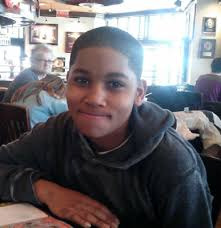
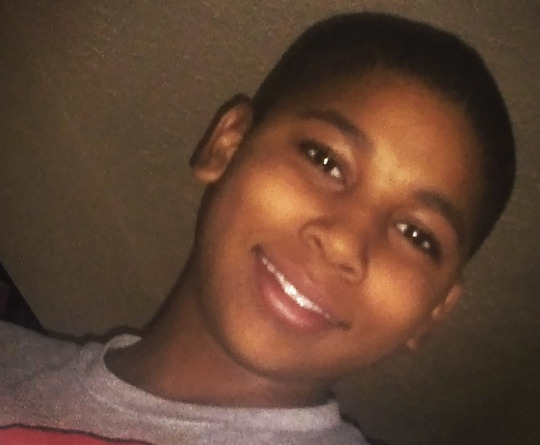


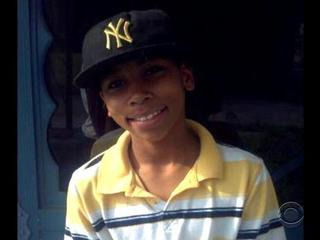
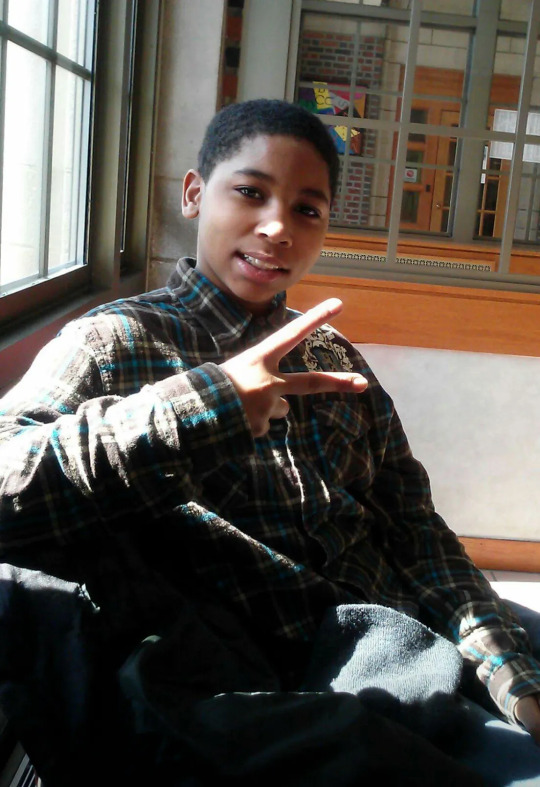
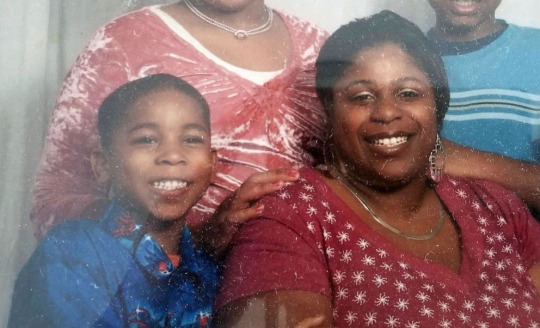

Do you think this boy could've been a threat?
This smile was taken away from his mother, from his sister, from everyone
But it's not forgotten.
I hope you guys learned something :)
Rest in peace Tamir Rice I hope you're eating chicken nuggets I wish I could've met you I was only 4 at the time you had lost your life
#tamir rice#police brutality#fuck police#fuck the police#eat the rich#all cops are bastards#black lives matter#people of color#stop discrimination again people of color#stop police brutality#he was only 12..#marcypostings!#fuck america#SUCK MY COCK AMERICA#I am NOT pressing the tags on tumblr that have the word suck in them.#justice for tamir rice#justice for poc#just a thought#yapping#im sorry#ramblings#blm movement#blm protests#universal human rights#throwback#things to remember
2 notes
·
View notes
Text
I wrote this piece for class, and submitted it to publication journal in the hopes of seeing it there. It was rejected, and so I have decided to share this here because it's a story I want to tell.
8 notes
·
View notes
Text

135 notes
·
View notes
Text



here’s my newest zine. it's a trifold pamphlet so just one piece of paper. i've included the printables. go nuts. take care of each other.
check out the infographic for full alt text and square ratios
691 notes
·
View notes
Text
#blacklivesmatter#black lives matter#george floyd#george floyd protest#black people#black women#black history#police brutality#racial injustice#blm movement#black history month
1K notes
·
View notes
Text
The war isn't over yet! DON'T LET THEM ERASE PALESTINE


#reblog to trow eggs at isnotreal#palestine#boycott#spread the word#black lives matter#blm protests#pro palestine#eyes on rafah#free gaza
97K notes
·
View notes
Text
🚨BREAKING🚨
Leaked documents reveal how riots are organized and funded through leftist NGO’s



#usaid#blm movement#civil war#democrat party#5th generation warfare#donald trump#deep state#psywar#president trump#50501 protests
228 notes
·
View notes
Text
✰☮︎ pick a card ☮︎✰
What do you need to learn to become a better organizer / activist?
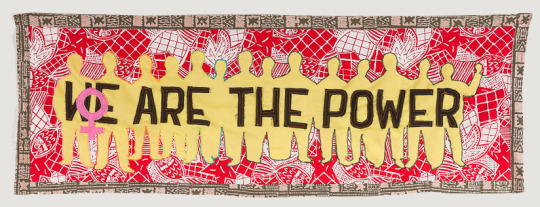
₊˚ʚᗢ₊˚✧゚for entertainment purposes only, and other disclaimers ✧˚ ༘ ⋆。♡˚
Organizing is a marathon, not a sprint. And luckily, we're already skilled, have a lifetime to learn more, and we have many talents to support us. What are the skills you're refining and the lessons you're learning, right now?
spread: Glenda's Guidance // decks: Tarot of the Divine
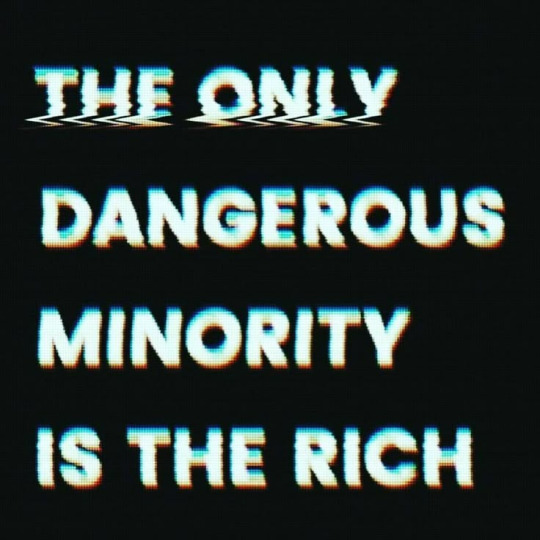

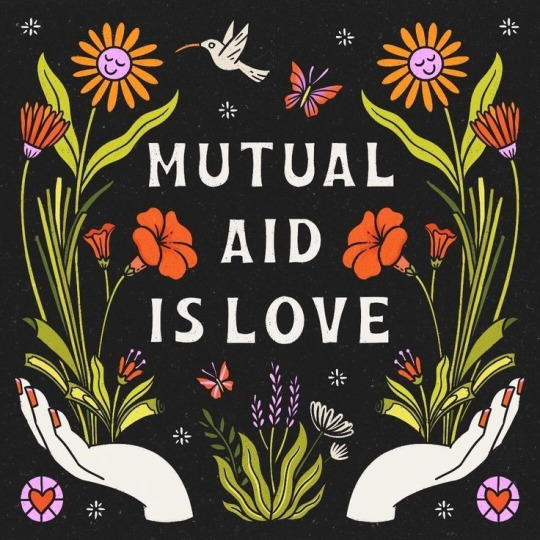
Pile 1 → Pile 2 → Pile 3
Inhale, exhale 3x, pick

✯✯ patreon ✯ free readings ✯ masterpost ✯✯

Pile 1
What skills and knowledge do you have right now?
Ace of Swords - You are the ideas person! You're excellent at immediately imagining new methods of achieving goals, coming up with new plans, and figuring out ways to solve seemingly impossible problems. Problems and sticky situations feel like a fun puzzle to you, so it's sometimes hard for you to realize this is something that feels difficult for other people. Just because this skill is a given talent of yours doesn't mean you should write it off as "nothing" or "no big deal". This is what makes you an important person to have around.
What do you struggle with, or have questions about?
Justice, reversed - You deeply struggle with the existence of unfairness in the world. Not just on a systemic level, but in personal relationships too. You care greatly about making sure interpersonal dynamics remain fair, or become fair, in your activist / organizing circles. Being misunderstood probably feels extremely painful for you. Luckily, there are a lot of resources on how to handle this, as many people have experienced the same thing. On the larger scale, it feels hard not to let doomerism get the best of you, because the injustice's magnitude is enormous. I recommend you learn about Revolutionary Optimism (how to have faith that good will come, even if you don't live to see it blossom).
How can you improve or learn?
2 of Swords - Learning how to sit with hard things, and difficult choices to make, will help you a lot. You might be used to making quick, sometimes impulsive, decisions based on your analytical skills. Unfortunately, there are times that bashing our way through problems creates more problems. How often do you connect with your feelings or intuition? Do you know what it feels like to do that? Doing exercises to connect with this neglected (intentionally or not) side of you will help you analyze and intellectualize the situation much better. When this skill is strong, hard choices will still be hard, but they'll be manageable with your new found strength.
A song for you (randomly shuffled): click me 🎶
🦢 ♥︎ much love - Glenda ♥︎ 🦢
♣︎★ mutual aid disaster relief - worldwide mask bloc - aid for Palestine, Sudan and Congo ★♠︎

Pile 2
What skills and knowledge do you have right now?
6 of Pentacles, reversed - You have a very sensitive bullshit radar for abuses of power, greed, scams, extortion, manipulation, and when innocent, gullible people are being preyed upon. You might feel sometimes like you see negativity everywhere, and maybe you can be too quick to judge. Nope. It's a very good thing you see what you see. You're a protector. You see when "good deeds" aren't that at all. Sure, monsters aren't everywhere, and a yellow flag might not escalate to a red flag. But keep observing in non-judgement and trust your intuition. Bring up proposals to prevent abuses when you can in your organizing meetings when you sense something is off.
What do you struggle with, or have questions about?
7 of Pentacles - You seem to struggle with patience, sacrifice, and perseverance. When you don't see results quickly enough, you feel an impulse to scrap it all and start fresh. You love the sense of accomplishment you feel like you see results. Well, if you want a big result, you need to put in a big effort. What might help is the fact that small wins are wins, and worth celebrating (even if it's something unconventional to celebrate). As an example, would you give up on your garden because your seeds didn't sprout immediately? Or grow fast enough? Or flower and fruit when you wanted them to? No. You'd keep working in your garden, checking on your plants and watering them. You could keep a little record or tally of what you do, and celebrate your work weekly or monthly. Depending on the sensitivity of your work, how you record it, what you record, and where you record is up to you (I am not giving legal advise - your choices and actions are your responsibility - edit: and please only do what feels safe for you and others). Whether or not you record or track or tally anything, celebrate and encourage yourself regularly. I only recommended tracking progress because it can help it to see evidence of your work when it feels like you’re stuck spinning your tires. Maybe you’ll think of a better method.
How can you improve or learn?
Hanged Man, reversed- Let go of your attachment to "should's". This belief isn't helping you or others. It's 100% okay and valid to be frustrated, but emotions have to move, they can't stay stuck. Whatever is frustrating you or stalling the momentum of your group's actions probably isn't going to change because you believe things shouldn't be this way, people should work differently, and things should be done differently. Surrender to the moment, and exhale. Exhale again. This peace will light the way forward, and you will know what to do. And the other great thing? You'll have the energy to move forward too (because you didn't waste it being so angry at being stuck). Breakthroughs come in stillness.
the Star - While I was shuffling, a card immediately jumped out of the deck. I put it back in case it wanted to come back up in one of these answers. It didn't, so I'm treating it as a bonus guidance message: Peace is coming back to you (if it hasn't already returned). You have a new sense of connection with yourself and who you are. You are loved, you are divine, you are always connected to Goodness, just like we all are (it's up to each of us to recognize it). You are as deserving as everyone else. Your hope and faith is being restored after massive trials and difficulties you've experienced. You'll feel a profound connection with Oneness. With this, you will experience many blessings and realize that things bigger than you can imagine are actually possible - this will give you a humbling gratitude. This is a new side of yourself you might be meeting for the first time, or a re-connection with who you were when you were innocent. It's safe to live in this new way, you know how to protect yourself.
A song for you (randomly shuffled): click me 🎶
🦢 ♥︎ much love - Glenda ♥︎ 🦢
♣︎★ mutual aid disaster relief - worldwide mask bloc - aid for Palestine, Sudan and Congo ★♠︎

Pile 3
What skills and knowledge do you have right now?
the Hermit - You are deeply connected with your intuition and own inner guiding light. You do not let the distractions and fears of the outside world and social media get to you. You focus on your work, your exercises, and your studies of theory, history, and everything else you're curious about. This discipline is a blessing, and other people might find relief and reprieve just being around you because you're calm and focused. You know your values and stand firm in your integrity. You make sure to avoid activities, people, and spaces that you know will tempt you to reject your values, or succumb to peer pressure. I connect with this personally: when I spend too much time with my rich family, I start to see poor people as beneath me, and anyone different from me as "other" - I limit my time with them so I don't change for the worse. Back to you, you find that others come to you to learn, and you might get confused because you feel there's nothing for you to teach them. You can't teach them how to find the answers, values, and guidance that is naturally inside themselves, because it's for them to learn. Well, you showing people that lesson by your example and sharing your practices will blow their minds. This simple way you live has a bigger positive impact you can imagine. Of course, don't let that get to your head ;) If you do, all that wisdom will be gone.
What do you struggle with, or have questions about?
the Emporer, reversed - You struggle with witnessing leaders be horrible and cruel beyond description. What can we do when people like this have so much power? You also struggle with how pervasive patriarchy and colonialism is, and how it warps peoples minds into accepting or doing evil deeds. I'm just one person and definitely don't have all the answers. An answer that helps me is that we can do much more than we realize, and our impacts are greater than we'll ever know. When we focus on empowering ourselves, meeting people where they're at, and helping others get in touch with their own agency, power, and autonomy, "all power to all the people" is that much closer to becoming reality. Just because someone has very little and needs help, doesn't mean they don't have help to give. That's the beauty of mutual aid. Our connection with each other gives us strength mightier than kings.
How can you improve or learn?
King of Wands and the Fool, both reversed - Deep down, you're a passionate person who probably harbors a lot of anger, or tries desperately to avoid it. Learning how to manage your anger means learning how to express it, not keeping it locked in tight. You many have had outbursts in the past, or have a history of being extremely controlling. Seeing how this harmed others probably made you want to never let it out again. Well, sometimes the passion and anger of others is healing, when expressed in a productive way. And it's a simple fact that leaders are needed. Learn what it means to express anger in a healthy way, and how to be a leader who remains open to good outcomes being what you don't expect, and treats everyone as equals. Read about what leadership is in horizontal power structures. Therapy, Stoicism, and Taoism might also be helpful for you. If you're confused about the Stoicism recommendation, I understand, and recommend the Rev Left podcast episode on it to help you know why I recommend it to you.
A song for you (randomly shuffled): click me 🎶
🦢 ♥︎ much love - Glenda ♥︎ 🦢
♣︎★ mutual aid disaster relief - worldwide mask bloc - aid for Palestine, Sudan and Congo ★♠︎

header image: uncredited pinterest pic // pictures: uncredited pinterest pics // dividers: I lost the link, let me know if you made them and I'll credit you // I do not consent to my writing, blog’s likeness, or anything associated with my work, to be used to teach any machine learning software and artificial intelligence for any purpose.
#glenda’s guidance#glendasguidance#tarotblr#tarot#witchblr#astrology#paganblr#wiccablr#activism#organizing#protest#mutual aid#trying to think of other tags that this post hopefully won't clog up or be a distraction for and how many I can fit in here#solidarity#queer community#disabled community#pro choice#pick a card reading#pick a card#spiritual journey#spirituality#social justice#blm movement#acab1312#climate justice#indigenous rights#trans rights#immigrant rights#workers rights#feminism
58 notes
·
View notes
Text
Sonya Massey, a black woman was shot three times, one being a fatal headshot in her own home for holding a pot of hot water, when she had called in the police for a prowler outside of her house.
she was shot. in. her. house. for saying "i rebuke you in the name of jesus". that's all. it took less than five seconds for Sean Grayson to whip out his pistol. said attackers partner offered first aid but he refused it because "it's a headshot, she's dead".
because no one can testify against you if they're dead.
the cops name is Sean Grayson, and he should never be able to leave prison.

this was not an "incident". this was a murder. do NOT let people forget her name.
BLACK LIVES MATTER!
tw below for gunfire. the death however is off camera and not visible.
youtube
#blm#black lives matter#diggstalks#heavy subject but my heart is fucking breaking over this#i don't have to suffer like that woman because i have the privilege of being mixed#and not being as darkskinned#but it's still fucking nauseating#that woman was a mother. she had a son.#she's dead and for what??#for fucking what#she's just dead and she didn't have to be#it's fucking disgusting#i have to talk abt it#I'm gonna look into local protests#my hearts breaking over this#im not religious but why would a god let this happen to his believer#Youtube
178 notes
·
View notes
Text
Class consciousness
#class consciousness#eat the 1%#eat the fucking rich#eat the rich#fuck amazon#fuck mark zuckerberg#fuck america#fuck ice#guillotine#socialism#leftists#karl marx#politics#fuck trump#fuck elon musk#fuck meta#class war#riot and protests#start a riot#i stand with palestine#lower class#middle class#the 1%#blm#political blog#dump trump
61 notes
·
View notes
